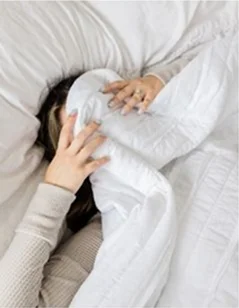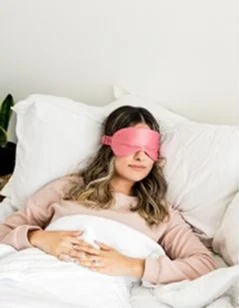As we are aware, sleep is an essential human requirement. Adequate sleep is crucial for maintaining a healthy mind and body since several aspects of human life, such as hormone levels, weight management, and mood regulation, rely on it. Regrettably, numerous factors hinder most of us from getting enough and restful sleep on a daily basis.
In this day and age, obtaining restful sleep is genuinely a blessing. Sleep patterns have become irregular since the introduction of technology and the discovery of electricity. Work schedules, age, and stress are the primary factors that significantly contribute to irregular sleeping patterns.
Non-24-hour sleep-wake disorder, also known as circadian rhythm sleeping disorder, occurs when a person's biological clock fails to synchronize with a 24-hour day. Irregular sleep-wake rhythm disorder is a type of circadian rhythm disorder characterized by an unobservable sleep-wake pattern.
The Circadian Rhythm
The circadian system is the human body's internal timing mechanism that regulates daily bodily functions through circadian rhythms. These rhythms have the potential to affect eating and sleeping patterns, hormone production, and body temperature. For instance, a 24-hour sleep pattern is one such circadian rhythm.
Types of Irregular Sleep Disorders
There are approximately 100 types of sleeping disorders, but some of the most common and noteworthy ones include:
- Sleep Apnea: -
Sleep apnea is a condition where a person's breathing stops and restarts during sleep, preventing the body from receiving enough oxygen. Central and obstructive sleep apnea are its well-known variations.
- Insomnia: -
Insomnia is the inability to initiate and maintain sleep, which most people have experienced at some point in their lives. Consistent difficulty falling asleep can shorten the sleep cycle, and some individuals may wake up too early or repeatedly throughout the night.
- Narcolepsy: -
Narcolepsy is a rare long-term brain disorder that causes individuals to fall asleep unexpectedly due to the brain's inability to regulate normal waking and sleeping patterns. As a result, people with this condition frequently experience unexpected bouts of sleep throughout the day.
- Restless Leg Syndrome (RLS): -
RLS is a neurological disorder characterized by unpleasant sensations such as creeping, pulling, throbbing, or generating in the legs. This itching, tingling, and aching sensation can last for several hours and can prevent an individual from getting sound sleep.
Causes of Irregular Sleep
Several factors contribute to irregular sleep patterns, and some of them are listed below:
Health-related irregular sleep patterns: -
- Stress
- High blood pressure
- Diabetes
- Lifestyle changes
- Hyperactivity
- Side effects of medications
Other causes of irregular sleep:
- Trauma
- Snoring
- Excess caffeine consumption
- Prolonged insomnia
Symptoms of Irregular Sleep
Numerous people are facing sleeping issues, and they have noticed some common symptoms:
- Trouble Falling Asleep
This condition can cause a person to struggle to fall asleep during the night and stay awake during the day. Additionally, they may wake up too early and be unable to return to sleep, disrupting their entire sleep cycle.
- Excessive Sleeping or Napping
Most sleeping disorder patients experience excessive sleepiness during the day and struggle to sleep at night. Experts have also noticed that patients dealing with irregular sleep experience dozing off at inconvenient times, such as while driving a car.
- Interrupted Sleep at Night
Insomnia patients often wake up in the middle of the night, which is quite common. Mid-sleep awakenings are mostly noticed during stressful times.
Treatments to Resolve the Irregular Sleeping Disorder
- Good Sleep Hygiene
Paying attention to sleep hygiene is crucial for getting sound sleep. Making changes in your sleep schedule, daily routines, and optimizing your pre-bed routine can help. Creating a pleasant bedroom environment can also help you unwind and sleep better.
- Melatonin
Melatonin is a hormone that regulates the sleep cycle and wakefulness. It is produced more at night and less in the morning. Taking melatonin supplements at the right time can help treat sleep-related issues like shift work disorder and jet lag.
- Bright Light Therapy
Bright light therapy is the primary treatment for irregular sleep cycles. It stimulates the retinal cells connected to the hypothalamus, which regulates the circadian rhythm.
Conclusion
Proper sleep is crucial for the restoration of both mental and physical health. If you are experiencing sleep disorders, seeking necessary treatment can be beneficial in treating the issues and preventing their recurrence.






.webp)


%20(1).png)
.png)
%20(1).png)


%20(1).png)




%201.png)
